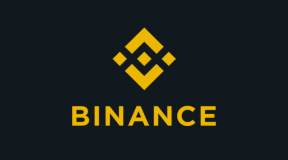The crytocurrrency market has ballooned to a total marketcap of $200,039,409,168 (R2,844,740,433,837.21 at time of writing) with Bitcoin sitting at the top of the pile with a dominance index of 61%. Various governments around the world a starting to get hip to the fact that cryptocurrencies are probably not going anywhere and will definitely be a pain in the rear end to ban and begun taking steps towards regulation.
Some have recognised cryptocurrencies as vehicles of a burgeoning new age economy and have, perhaps in a bit to position themselves as the new age economic superpowers by virtue of early adoption, gone so far as to issue their own digital currencies to complement their respective national fiat currency.
Ecuador
The South American country followed a 2014 a wholesale ban on Bitcoin and cryptocurrencies with the issuing of a national cryptocurrency, Dinero Electrónico, in 2015 as part of the country’s monetary laws.
The Dinero Electrónico tokens are backed by the assets of Ecuador’s central bank, Banco Central del Equador, and pegged one-to-one to the US dollar, which is Ecuador’s national currency. This South American nation was also the first to roll out a central bank issued and controlled digital currency.
Tunisia
The Tunisian government teamed up with the Monetas to issue a blockchain powered digital currency stored in the La Poste Tunisienne app, enabling 3 million unbanked Tunisians to participate economically by making instant payments worth fractions of a Dinar, at almost no fees at all. The Monetas powered La Poste Tunisienne app, is said to allow for the management of official government identification documents.
Tunisia E-Dinar (EDR) is valued at $0.008670 (about R0.12) on coinmarketcap.com
Senegal
Taking a page out of Tunisia’s playbook, Senegal’s Banque Regionale de Marches and eCurrency Mint, this year collaborated and released a digital version of the country’s CFA franc. The blockchain powered eCFA is pegged to the fiat currency value and is stored in emoney wallets.
Sweden
Not to be outdone, the Swedish central bank, Riksbank, is currently working on a digital version of the Krona. The eKrona, as it has been called, is slated for release in 2018.
Estonia
Being a tech-friendly country and also the first to store it’s data on blockchain, Estonia will issue a currency called Estcoin.
Russia
After months of regulatory obfuscation and ambiguity on it’s position on cryptocurrencies, The Central bank of Russia issued a statement that it was working on a national cryptocurrency for Eastern European nation. Deputy chairwoman of the Central Bank of Russia, Olga Skorobogatova, even went as far as saying cryptocurrencies are the future.
Japan
Japanese banks are working on issuing a cryptocurrency, J Coin, ahead of the 2020 Tokyo Olympics which will be pegged one-to-one with the Yen. J Coin will be tradable for goods and services through smartphones.
Dubai
A little over a month ago, the government of Dubai revealed intentions to issue a blockchain based cryptocurrency, EmCash, which will be used by residents of the UAE through the Empay smartphone app.
The currency is being developed through a collaborative effort between Emcredit and UK based blockchain firm Object Tech.
It remains to be seen, how this new crop of government-issued cryptocurrencies will affect the crypto market. What do you think of these recent developments? Leave a comment below.







